Joaquin 'El Chapo' Guzman Arrested in Northern Mexico Early Saturday
Mexican authorities captured Sinaloa drug boss Joaquín "El Chapo" Guzmán, who has not appeared in video or photos since he escaped from prison in 2001.
Mexican Navy marines captured Joaquin "El Chapo" Guzmán, the world's most powerful drug lord, in a predawn raid Saturday on a modest condominium in the western resort of Mazatlan, officials said.
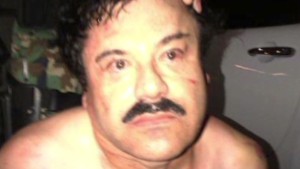
The capture likely ends the legendary career of the farmer who rose from poverty in the mountains of the state of Sinaloa and built an empire of cocaine and marijuana that made him a billionaire and caused much of the violence that has killed tens of thousands of Mexicans in the last decade.
The arrest of the capo, often described as today's equivalent of the late 1980s Colombian drug lord Pablo Escobar, marks a victory for Mexican President Enrique Peña Nieto, and for his party, the Institutional Revolutionary Party, or PRI. The PRI ruled Mexico for seven decades until it lost power in 2000, returning with Mr. Peña Nieto in 2012 elections.
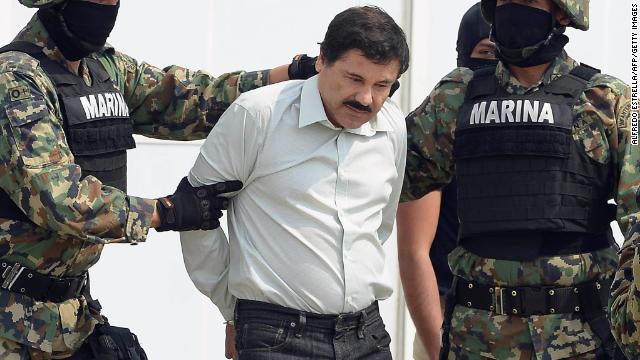
"It's a major coup for the Peña Nieto administration and its allies," said George Grayson, an expert on Mexico and the drug trade at the College of William and Mary in Virginia.
U.S. Attorney General Eric Holder hailed the capture as a "landmark achievement."
Mr. Guzmán, believed to be 56 years old, was captured once before in 1993, but became a legend among drug traffickers by escaping, hidden in a laundry cart, from a maximum-security prison in Mexico in 2001.

He had been on the run ever since, a living symbol of the inability of the Mexican state to corral its powerful drug gangs or their corrupting influence on the country's law-enforcement institutions. Most Mexicans believe the drug lord bribed his way out of jail.
It seems unlikely that the arrest will ease the violence. In the past, the capture or death of cartel bosses has often led to a short-term spike in violence as either a fight over succession breaks out within the cartel or other cartels try to take over turf from the deceased capo.

Cartels such as the Gulf Cartel and the Zetas, which have been weakened in recent years by government strikes, could fight over the drug routes and regions left on the table by Mr. Guzmán, said Raul Benitez, an expert on security at National Autonomous University of Mexico.

Mexican military held Mexican drug lord Joaquin 'El Chapo' Guzman Saturday
"There will be a war to control his territories," said Mr. Benitez.
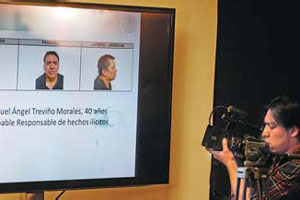
Mr. Guzmán arrived on a government airplane to Mexico City's airport, where a waiting helicopter took him to prison. Two marines in camouflage uniforms firmly grasped the captured drug lord, one of them pushing his head down with his hand.
In addition to one of Mr. Guzmán's alleged accomplices, authorities confiscated 133 weapons, as well as two grenade launchers and a rocket launcher.

The capture was the final scene in a month-long drama that began when intelligence agents discovered one of Mr. Guzmán's hide-outs, a house with reinforced steel doors, in Culiacán, Mexican Attorney General Jesús Murillo Karam told a news conference.
The house had underground tunnels that connected it to seven other nearby houses and was also linked to the city's drainage system, which offered the drug lord an easy means of escape.

Mexican authorities could have captured Mr. Guzmán in previous days, but waited to ensure no civilians might be caught in a potential crossfire, Mr. Murillo Karam said. "It was an impeccable operation achieved by navy personnel," he said.
U.S. intelligence played a role in the operation, but U.S. officials described this as very much a Mexican operation.

"It was a Mexican operation in Mexican territory," said a top-ranking U.S. official. "We played a supporting role."

Mr. Guzmán will likely be replaced by his close associate Ismael "El Mayo" Zambada, according to Mr. Grayson, the Mexico expert. He said it was unlikely the cartel would be torn apart by infighting.
"There was never a hint of hostility between El Mayo and El Chapo," he said. "They worked together deftly."

Mr. Guzmán's power to corrupt security forces is the stuff of legend in U.S. and Mexican government circles. Four or five times, Mexican security forces arrived a day late to where Mr. Guzmán had just been. "There were more sightings of El Chapo than there were of Elvis," said Mr. Grayson.
Many ordinary Mexicans had trouble believing the news.
Tracking Guzmán Across Mexico
"They finally got him? It would be good for the country, but I kind of doubt it. And if they have got him, they'll let him go again. He's untouchable," said Jose Carcaño, a 35-year-old office worker.
Others said they were sure the peaceful arrest was the product of a secret deal between the drug lord and the Mexican government.

"These types of things are often arranged," said Carlos Velasco, 53 years old, a small-business man in Mexico City.
Analysts said the capture should boost confidence among Mexicans and foreign governments in the Mexican government and in particular the PRI, which was widely seen as responsible for allowing drug gangs to become so entrenched in Mexican society during the party's long rule from 1929 to 2000.

Many Mexicans worried that Mr. Peña Nieto's administration would strike a bargain with drug lords to reduce violence in exchange for letting them ferry their illicit products.
"This eliminates any suspicion that Peña Nieto was going to negotiate with the cartels, and shows he is serious about fighting drug trafficking," said Mr. Benitez.

Mr. Guzmán's capture was also a triumph for Mexico's navy. Far smaller than the army, the navy is seen by Washington as more efficient and trustworthy. It has played a role in the capture or death of several top drug lords.

For many in Mexico, Mr. Guzmán is the most daring and intelligent of the drug-gang leaders. His cartel, while brutal, often avoided kidnapping and extortion carried out by other gangs, crimes that angered many ordinary Mexicans. The effect was that Mexico's army focused much of its attention on arresting leaders of other cartels, such as the bloodthirsty Zetas.
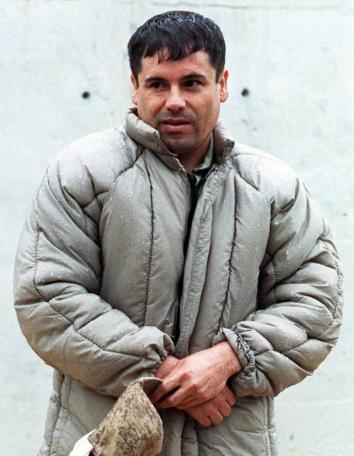
One of four brothers, Mr. Guzmán was born in poverty in a Sinaloa mountain hamlet in the county of Badiraguato, which has the dubious distinction of being the birthplace of most of Mexico's famous drug lords. Badiraguato's location has a lot to do with it: It is the gateway to Mexico's "golden triangle," a remote, mountainous intersection of Sinaloa, Durango and Chihuahua states where opium and marijuana have been grown for generations.
As a young man, Mr. Guzmán rose through the ranks to become a top lieutenant for Miguel Ángel Félix Gallardo, another Badiraguato native and former police officer who had become Mexico's top drug lord. Known as El Padrino, or the Godfather, Mr. Félix Gallardo cobbled together a super-cartel dominated by fellow Sinaloans called "The Federation."

But the relative unity imposed by Mr. Félix Gallardo collapsed after his arrest in 1989. His empire, in particular the border crossings that were useful smuggling points, was divided up among his lieutenants. Mr. Guzmán and his close friend Héctor "El Guero" Palma got the border crossing at Mexicali, about 70 miles from Tijuana.
Mr. Guzmán began building an empire of his own. He pioneered the use of underground tunnels across the U.S.-Mexico border to ferry drugs. One such tunnel near San Diego had electricity, air vents and rails to transport the drugs, according to the Drug Enforcement Administration.
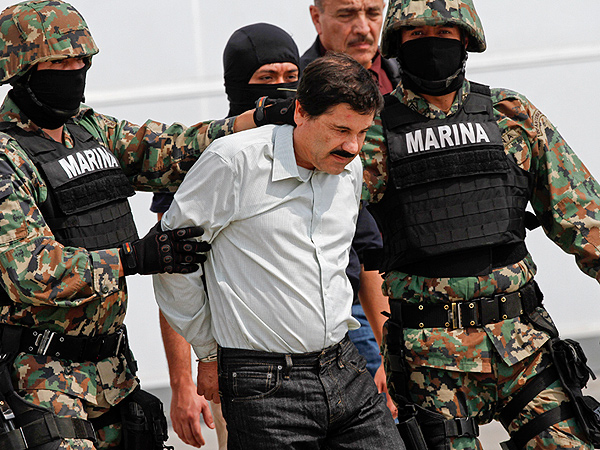
Mr. Guzmán operated an assembly line, packing cocaine into chili pepper cans under the brand La Comadre, exporting the drugs to the U.S. by rail, his former top accountant, Miguel Angel Segoviano, testified in 1996 at the trial of one of Mr. Guzmán's associates. In return for the drugs, Mr. Guzmán imported into Mexico millions of dollars packed into suitcases flown into the Mexico City airport, where bribed federal officials made sure there were no inspections.
Part Al Capone and part Jesse James, Mr. Guzmán became a folk hero, feted on YouTube videos and by musicians who penned ballads, known as corridos, in his honor. He is known throughout Mexico simply as "El Chapo," Mexican slang for a short and stocky man.
Adding to his mystique, "El Chapo" survived several assassination attempts by rival gangs, including a 1993 attack that killed a Roman Catholic cardinal.



No comments:
Post a Comment
Note: Only a member of this blog may post a comment.